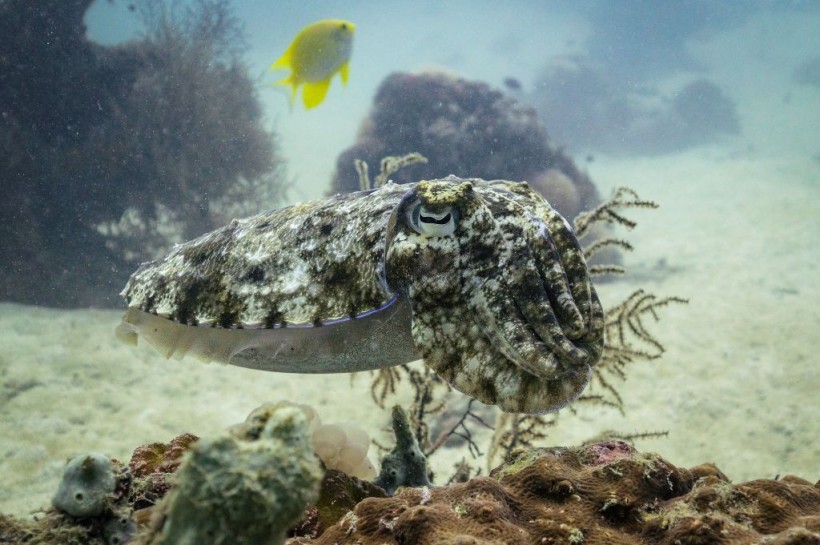A new study confirmed that human cells can be altered to act like squid skin cells.

This underwater picture taken on November 18, 2020 shows a broadclub cuttlefish (Sepia latinamus) near Koh Lipe island, a popular diving area in the Andaman Sea, off the southern Thai province of Satun.
The results they acquired are expected to allow other scientists to have a better understanding of the camouflage capabilities of squids.
For the past years, researchers are having a hard time learning squids' natural camouflage abilities.
This is because their cells can't be cultured in laboratories. But, with the efforts of the University of California researchers, a new technique was discovered to make this possible.
New Study Alters Human Cells to Act Like Squid Skin Cells
According to Ars Technica's latest report, the University of California's team presented their study's results at the ACS meeting.

A squid swims late at night near the surface of the Mediterranean sea water off the coast of the northern city of Batroun, Lebanon on August 29, 2021. (Photo by Ibrahim CHALHOUB / AFP)
Also Read: Fin Whale Spotted to be Struggling to Swim in Spain, Severely Deformed Back Due to Injury, Scoliosis
"So we engineered mammalian cells to express large amounts of this protein reflectin, that is also found in squid skin cells," explained Alon Gorodetsk of the University of California.
Gorodetsk added that they discovered that reflectin proteins' self-assembled structures are very similar to those found in the leucophores.
This allowed them to capture some of the properties of squid skin cells in the mammalian cells.
Since mammalian (human) skin cells can be cultured in laboratories, altering them to act like squid skin cells will allow more researchers to understand cephalopods' camouflage abilities.
How New Squid Study Can Benefit Science
Aside from offering a better understanding of squids' camouflage capabilities, the results of the new study can also be used in other science fields.
The new cell-altering technique used by the University of California can enhance other imagery methods used to study different cell types.
"Reflectin as a molecular probe provides a lot of possibilities to track structures in cells with advanced microscopy techniques," explained Georgii Bogdanov, another researcher from the University of California, via Eureka Alert.
This means that imaging approaches designed based on their work can provide implications to better understand cell development and growth.
As of writing, Gorodetsk, Bogdanov, and their other colleagues are still working on their latest study about replicating squid skin cells.
You can watch their official discussion by clicking the YouTube video below.
In other news, scientists successfully bred a mouse using two male mice.
Previously, a 3,500-year-old bear in Siberia was recently dissected.
For more news updates about squids and other animals used in studies, always keep your tabs open here at TechTimes.
Related Article: These Squid-Inspired Liquid Windows Could Help Buildings Preserve Energy









